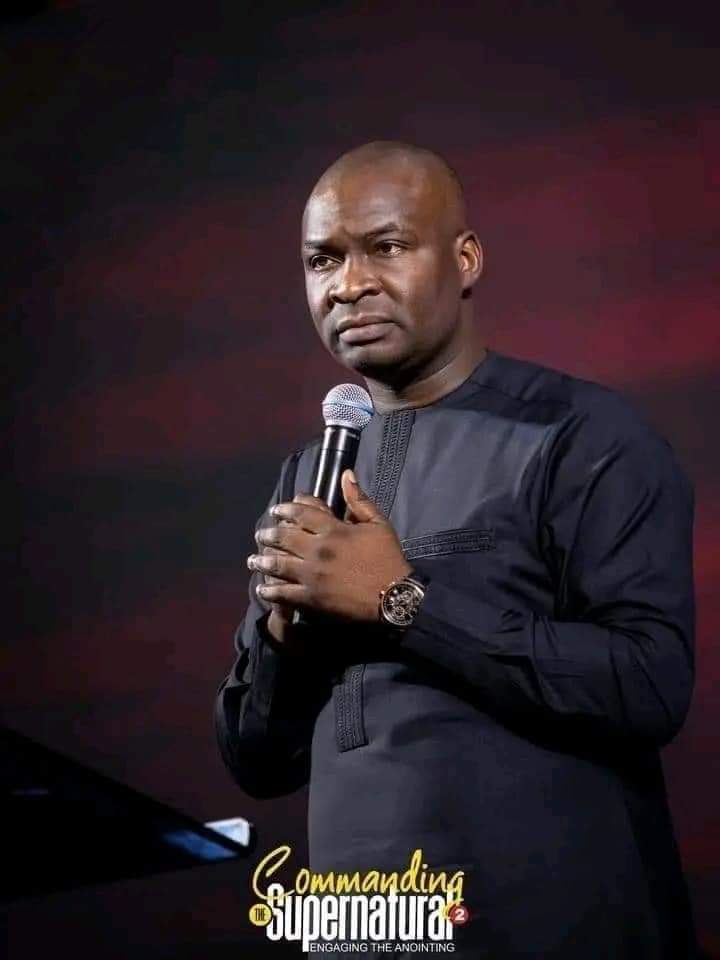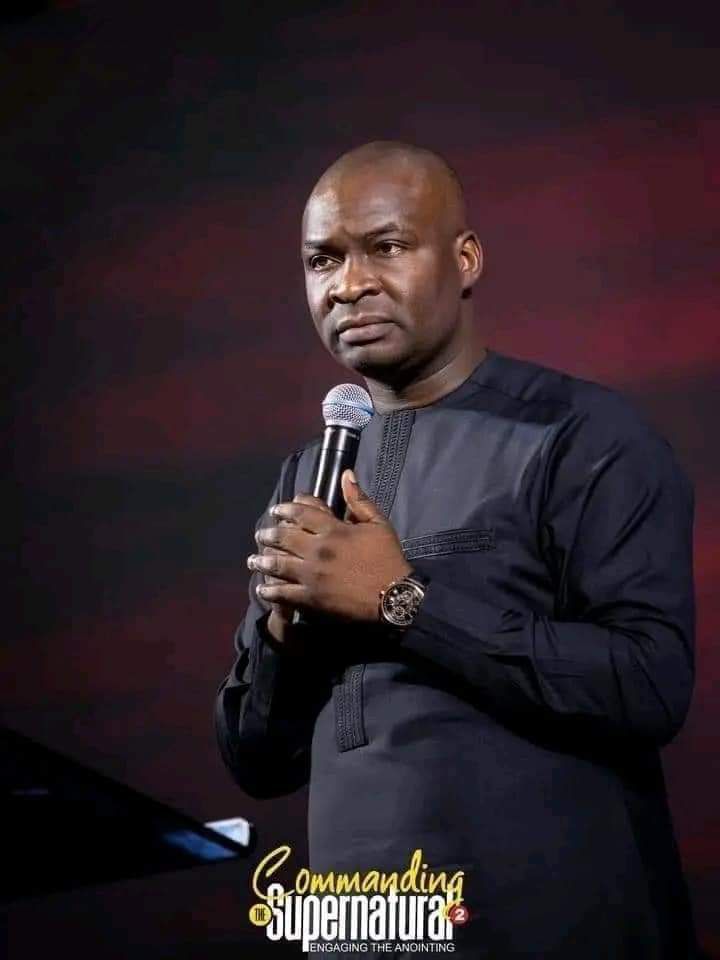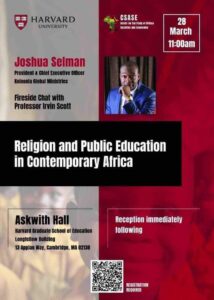News
Ambode And The Street Traders Of Lagos By Reuben Abati
I am writing this piece after holding a series of conversations with Lagos street traders and hawkers who seem not be aware of or are just indifferent to, or may be they are intrigued by, the fact that the State Governor, Akinwunmi Ambode has declared on television that the state government is prepared to enforce an existing law banning street hawking.
The relevant law, the Lagos State Street Trading and Illegal Market Prohibition Law, 2003 prescribes a punishment of N90, 000 or a six-month jail term, for both the buyer and the seller of any goods or services on the streets. So I asked this vendor, who kept pushing copies of the day’s newspapers in my face, so close, you wouldn’t even be able to read the headline free of charge.
“My friend, are you aware that what you are doing is illegal? You never hear say Governor Ambode don ban street trading?”
“That one no concern vendor oh. Na these other people wey dey sell chewing gum and water dem dey talk about”
“No. Street trading is street trading. You are hawking your newspapers, why don’t you get a shop or a stand?”
“Make I open shop to sell newspaper? Na for inside traffic people dey buy newspaper, oga?’”
“I just hope they won’t arrest you. The fine is N90, 000 or six months in jail.”
“Oga, you wan buy paper? Which one you wan buy, I beg. See, the thing be say, for this Nigeria, anytime wey anybody reach power, dem go just dey do wetin dey like. Dey no dey pity we poor people at all.”
I laughed and drove off.
“Water! Water!”, I yelled at a young man carrying a small basket of drinks. He ran to the car from the other side of the road, side-stepping a Keke Marwa and almost colliding with a motorcycle.
“How much?”
“N100”
“Can I buy because I hear the Governor says they should arrest anybody that is hawking anything in Lagos. And this is Agidingbi oh, too close to Alausa. Please.”
“Oga buy wetin you wan buy. If we no sell water for traffic, you know how many people go don die for inside go-slow. When traffic start now, even Ambode go buy water for inside traffic drink.”
“Oya, bring it quickly. Don’t let those LASTMA people see you.”
“Which LASTMA people? Oga, relax. Na we-we. As we dey this street so, nobody fit remove us.“
As I listened to his attempt to share his knowledge of the streets, I heard the clanging of a bell. A bicyclist was approaching, a mini-cooler, hanging conspicuously in his front. Fan Ice! Fan Milk! A young girl passed, carrying a tray of groundnuts. The early morning traffic was beginning to build up, 24 hours after Governor Ambode huffed and puffed on television about street hawking.
I immediately remembered Olajumoke Orisaguna, the Nigerian Cinderella, who made it from street hawking to the runway. It occurred to me to ask one of the hawkers.
“Do you know Olajumoke?”
“Olajumoke, oni bread. Oga you sef, e ti jasi. Don Jazzy, Baba. If Olajumoke no sell bread for street, how dem for discover say him get talent. Oga, as you me so, I be student oh for Polytechnic. The money I make from the street, that ‘s what I use to maintain myself and one day, if I become Governor in this country, I‘ll remember and I will not ban street hawking.”
That was some sobering thought. The sociology of street trading is worth understanding. It is mostly a source of employment for many persons with low income and low education, and in its more structured format, a large part of the informal sector in many parts of the world. For the buyer who has been demonized along with the seller in the Lagos state law, street trading actually provides easy access to a lot of goods and services, and when you are trapped in the ubiquitous traffic hold-ups across the city, running into hours oftentimes, it helps to just look out the window and buy any food item ranging from fish, to fried meat and shrimps, loaves of bread, biscuits, gala, meat pie, water, beer and any other drink. If it is a rainy day and you need to step out of the vehicle, you can buy an umbrella while in the traffic. You can also get served hot milk, tea or coffee, or have a shoe-shiner give your shoes a new, clean, gleaming look.
On a sunny and humid day, and you are thirsty, you can have very cold fan milk, or any other drink to cool down your system. Pop-corn, roasted maize, walnuts, name it, everything is available by the roadside, as the traffic crawls. If you have issues with your phone, or your wrist-watch, or even your clothes, you can buy new ones on the streets. Books, musical CDs, electronics, even sex toys, and aphrodisiacs. There is a special connection between traffic and street trading. But there are also challenges for all parties involved: for the buyer, you could get sold fake or risky stuff, and your money could be stolen – always collect the goods and your change before you hand over any amount.
The sellers always have to contend with physical risk and sexual abuses, run-ins with extortionist law enforcement officials, nerve-wracking exposure to the elements, and competition for space. People sell on the streets because they cannot afford to rent shops or erect structures, and in any case, government is often part of this problem. Markets are taken over by the authorities with the intention to modernize them, but when the shops and stalls are built, the original traders can no longer afford them because they would have been taken over by the rich and prized beyond the reach of the poor who are then forced onto the streets, thus deepening the agony of the displaced and the marginalized. This is the story of Tejuoso market in Lagos, as is the story of others across the country. If street traders had a choice, they would also acquire permanent structures where they can display their wares in safety. If they could help it, they will also sit in the comfort of air-conditioned vehicles. Traffic and street trading further define an existential part of the urban social order, and in Lagos as elsewhere, the character, pulse and soul of the city.
The convenient tendency for government officials is to dismiss the street as the haunt of miscreants, criminals and the dubious and street trading as a nuisance to the social order. This is what Governor Ambode of Lagos has done. The trigger for his televised sanctimony is the recent clash in Lagos at Maryland and Ojota, involving the law, traffic and street traders with tragic consequences. We are told that Kick Against Indiscipline (KAI) officials had given a hawker the chase, that fateful day. As the young man ran across the busy expressway, he found himself in front of an on-coming state-government owned BRT bus, which crushed him instantly – his intestines gouged out. This resulted in mob action.
In the process, 49 BRT vehicles, belonging to the state government were torched, and according to the Governor, it will cost the state government “almost N139 million to put those buses back on the road.” The Governor sounds as if the loss of these buses is more painful than the death of Nnamdi, the street hawker who was chased to his death. Haba, Governor, se oro ni yen! The Governor needs to be reminded of the over-zealousness of KAI-LASTMA officials and the recklessness, also, of BRT bus drivers, and the fact that N139 million may replace buses, but it will not replace a life that has been lost. It is also hard to believe that the Governor’s position is based on the outcome of investigations, which try to distance the state officials from the accident, and even if this is so, the decision to exhume a law that is to all practical purposes, a dead law, only enforced opportunistically, does not fully address the issue. A law is dead as an instrument of social justice when it is openly defied, disregarded, resisted and attempts to enforce it are openly ridiculed, and the state itself finds its application difficult in the face of the people’s preferences and choices. The test and impact of any true law is in its application.
To get hawkers off the streets, government must provide alternative opportunities and invest more in social capital. The menace of traffic hold ups should be addressed and a proper transportation network must be in place. Shops and stalls must be affordable and accessible and markets should be located in user-friendly locations. Street hawkers are constrained by their social circumstances, most of all, by poverty. To check street trading, government must also address the rising threat of rural-urban migration. Lagos as a growing megalopolis is the destination of choice for all kinds of adventurers from Nigeria’s hinterlands, they arrive in the city, and having nothing to do, they manage to buy a basket, or a tray, which they fill with goods that may not be up to N5,000, and they jump onto the streets, struggling to earn a living as the traffic crawls.
To push them out is to destroy the only dream they have of remaining human. The state government should take a second look at the law: perhaps the most urgent thing is to insist that anyone of school age, must not be found hawking, during school hours. And no matter what, Governor Ambode should not rob us of the humour of the streets, a rich therapeutic part of life and living in Lagos. I remember as I say this, those young, nubile girls on the streets of Lagos who sell drugs and local herbs. They all have the same qualifications: their front-lamps are permanently in the North, staring directly into a man’s eyes. The girls are coy, friendly, optically tempting, and they only target men as customers. Even when you insist you don’t need what they sell, they won’t let you be.
“Oga, buy this tablet now. Or taste this drink. Madam will thank you for it.”
“Madam? She must not even know I spoke with you!”
“But she will thank you, I swear.”
“You have used it before?”
“Hen hen.”
“Okay. But before I buy anything, I must test it. And na me and you go test am. Enter moto, make we go.”
“Hen, go where? Oga, go test am with Madam for house.”
“No. I will test it on you first. Fine girl, you dey fear?”
Oftentimes, this is followed by much laughter with the girl scampering off…
Celebrities
DNA SAGA: Actor Yomi Fabiyi Writes Mohbad’s Widow; Wumi Aloba

Dear Wunmi,
A DNA CAN BE REQUESTED BY MOHBAD’S FAMILY
I share in your family’s pain in the loss of Mohbad. May God forgive his sins. I am writing you based on the prolonged arguments on the issue of DNA concerning Mohbad’s son and ongoing investigation into the actual cause of his death.
The following reasons are why you can be compelled for a DNA TEST by Mohbad’s family:
i) From the look of things, Mohbad’s death is tilting towards “HOMCIDE” owing to events that happened in the last 48 hours before the singer d1ed. The coroner inquest is an investigation and needs closure before charges.
ii) In a saner cline, those around the deceased, those who tampered with the active crime scenes, are SUSPECTS and should have been taken in for questioning, which include you.
iii) If there is evidence/accusation of infidelity around the time of conception against you or re-occuring domstic violnce (and no clear reasons for conflicts), chances are the cause is due to paternity Only a DNA test can vindicate you, dear. It’s your advantage.
iv) if Liam will inherit the late singer’s estate and the likely cause of his muder is within the house, the family as a legally interested party can ask you honourably or through the court to conduct a DNA before you can be allowed custodian of their son’s properties on behalf of LIAM, etc. Moreso, the DNA will help investigators narrow their drag nets. NO ONE SHOULD OBSTRUCT POLICE or CORONER’S INVESTIGATION.
v) Mohbad, in an unverified audio released, equally accused you of wanting to kll him. No one knows if it is the normal couples’ fight or if it was due to any other sensitive issue.
vi) Anything that will bring clarity, absolve you of any wrongdoing, erase suspicion around you, get justice for Mohbad should interest you,including a DNA TEST.
vii) Your continued back and forth is an attempt to infuriate members of the public and pitch irrates youths against the Police and government. No sooner, people will conclude that someone powerful is shielding you. And that person can’t be more powerful than a determined masses.


News
JUST IN: “I Know That Liam Is My Grandson, I Don’t Doubt It, But Wunmi Should Do The DNA For The Sake Of Nigerians To Know That Liam Is Mohbad’s Son” — Baba Mohbad Says
News
Harvard University To Hosts Apostle Joshua Selman

Harvard University’s Center for the Study of African Societies and Economics (CSASE) is set to welcome Apostle Joshua Selman, the esteemed founder of Koinonia Global Ministries, for a compelling lecture titled “The Role of Religion in Resilient Societies: Lessons from Africa’s Development Journey.”
Scheduled for Tuesday, March 26th, 2024, from 12:00pm to 1:30pm, the event will take place at the renowned Harvard Divinity School. Apostle Joshua Selman’s lecture promises to shed light on the vital role of religion in shaping resilient societies, drawing from Africa’s unique developmental trajectory.
Attendance requires registration due to the exclusivity of the occasion. Following the lecture, attendees will have the opportunity to participate in a reception aimed at fostering deeper engagement and dialogue.
Harvard University invites all interested individuals to join Apostle Joshua Selman for an enlightening conversation that seeks to challenge perceptions and inspire new insights into the relationship between faith and social progress.


-
News6 years ago
Blog Reader; Samson Osagiede Celebrates Fiancè Benedicta Daniels’s Birthday With Sweet Words
-
Home7 years ago
News Channel claims Donald Trump is an orphan from Pakistan,share alleged childhood photo
-
Home7 years ago
Oil Spillage: House of Reps Member Shares Photos of the Water her Constituents Drink .
-
Home7 years ago
Another $175m Found in Patience Jonathan’s wife’s firm’s Bank Account
-
Home7 years ago
Zara Buhari & Ahmed Indimi’s Wedding Access Card
-
News6 years ago
The Best Video You’ve Seen Today?
-

 Sport6 years ago
Sport6 years agoModric, Marta Wins 2018 FIFA Best Player Of The Year Awards ⚽️
-
News4 years ago
I Rαped Over 40 Women In One Year” – Says Kano Serial Rapist Who Was Caught In A Child’s Bedroom



